
Indonesia is known for its beaches, mountains, wildlife and volcanic islands. However, in this tropical paradise, many people struggle with poor nutrition, and secondary-school attendance is low. The children Compassion serves experience these realities on a daily basis. But at the Compassion project, there is hope.
More than
children served
More than
church partners
Serving since
In Indonesia
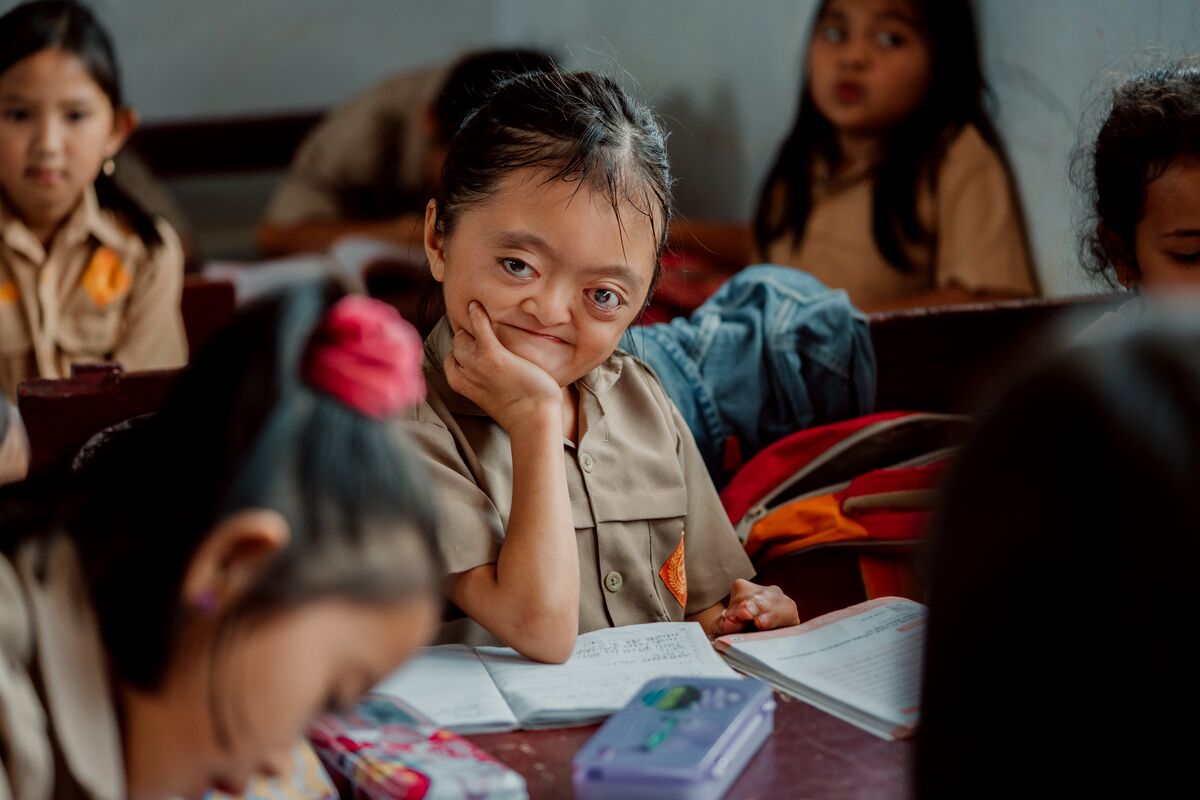
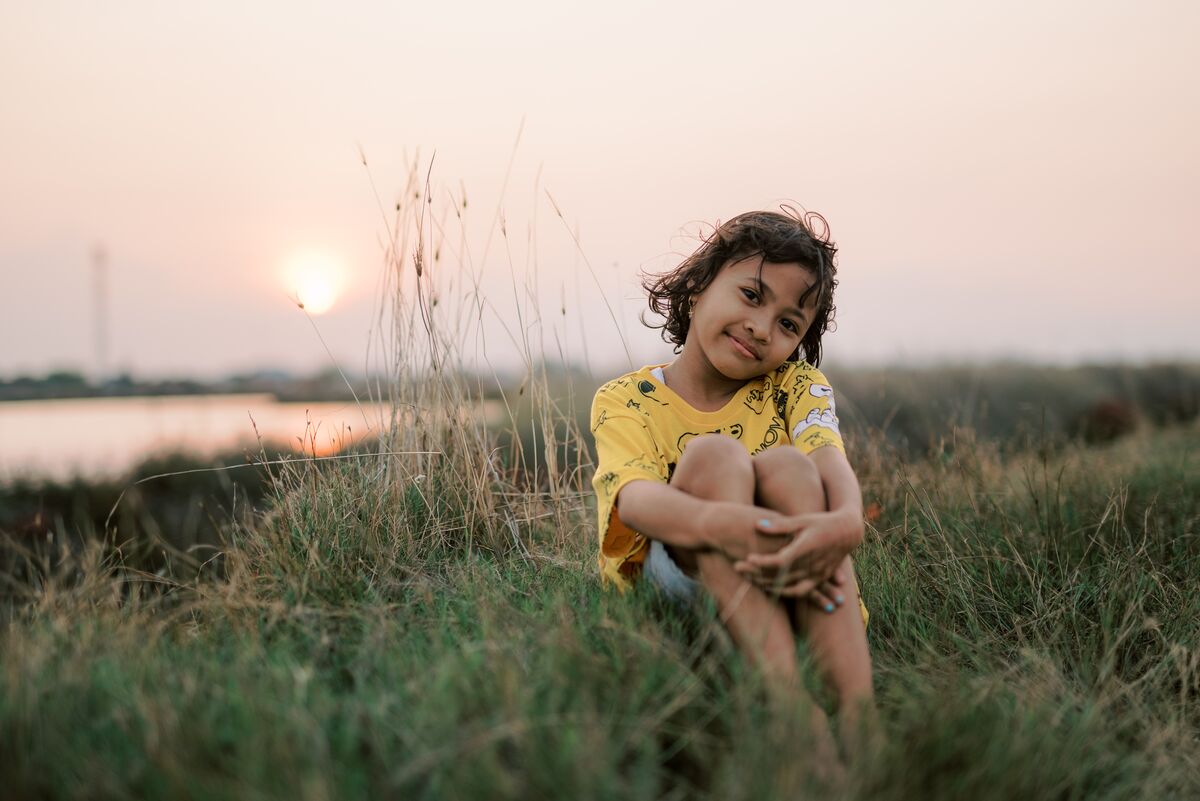
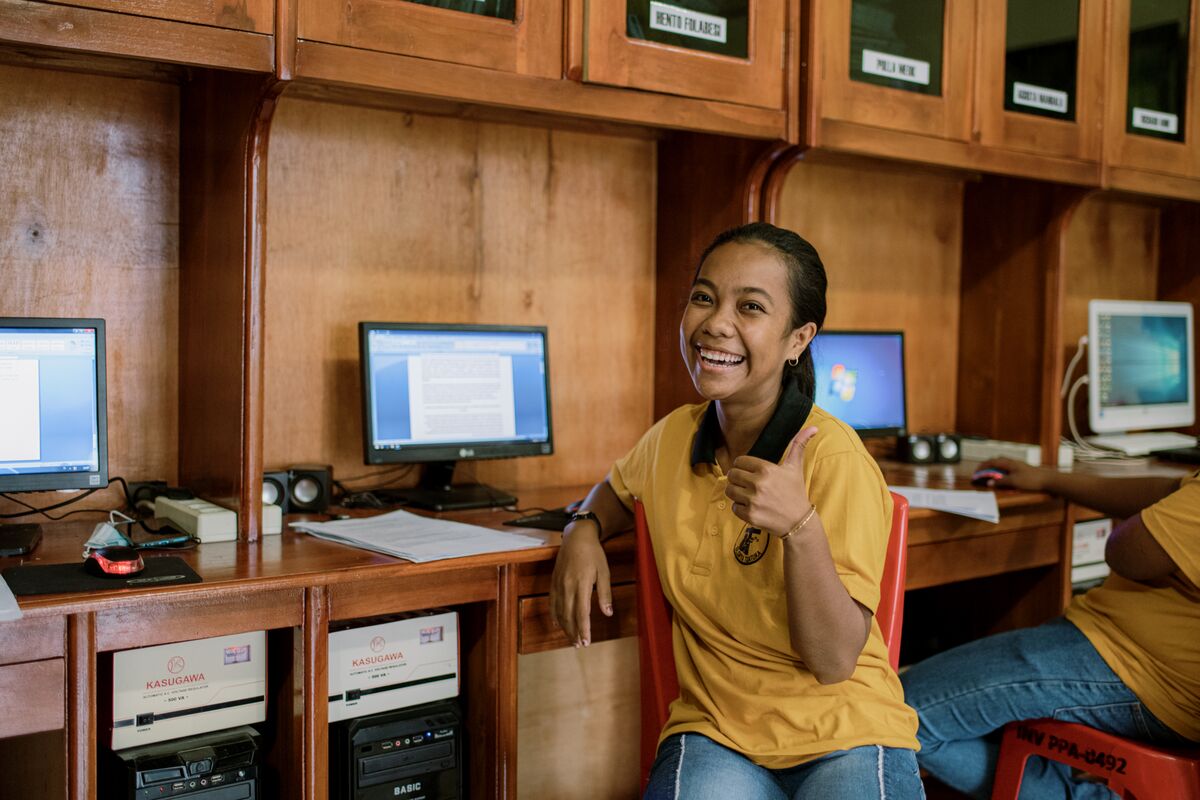

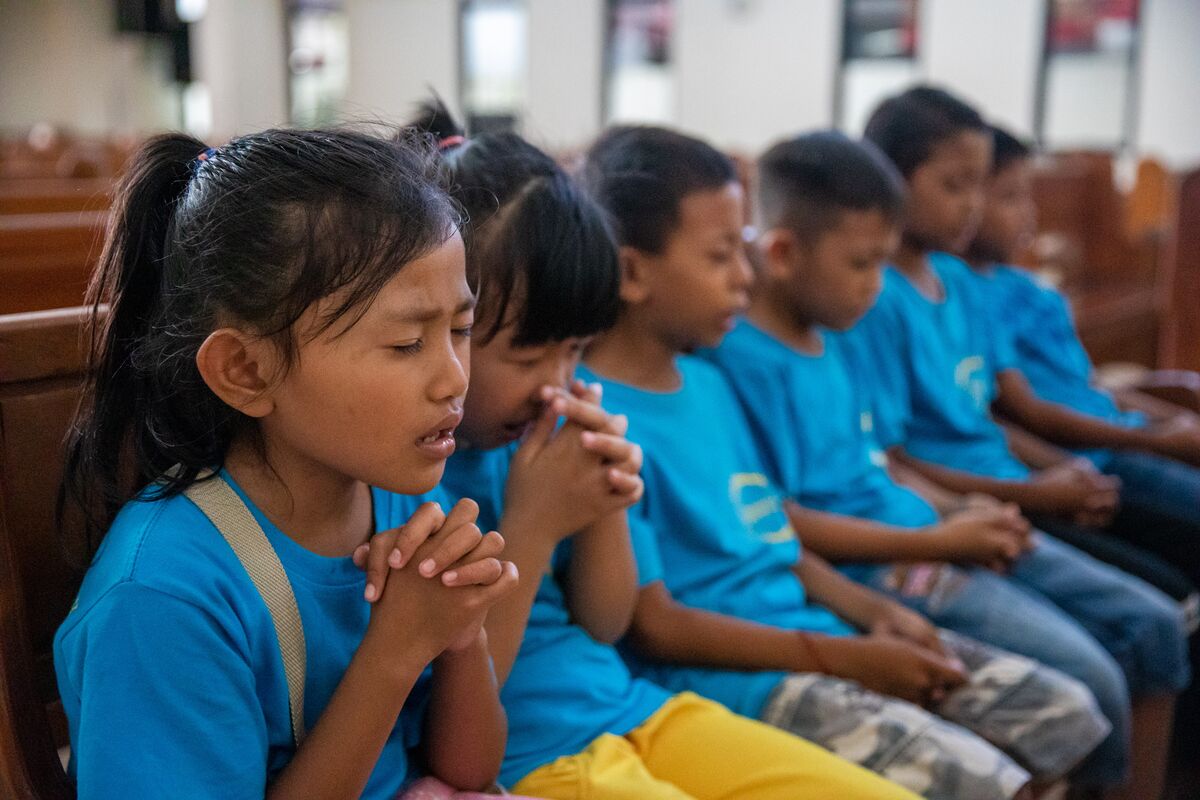
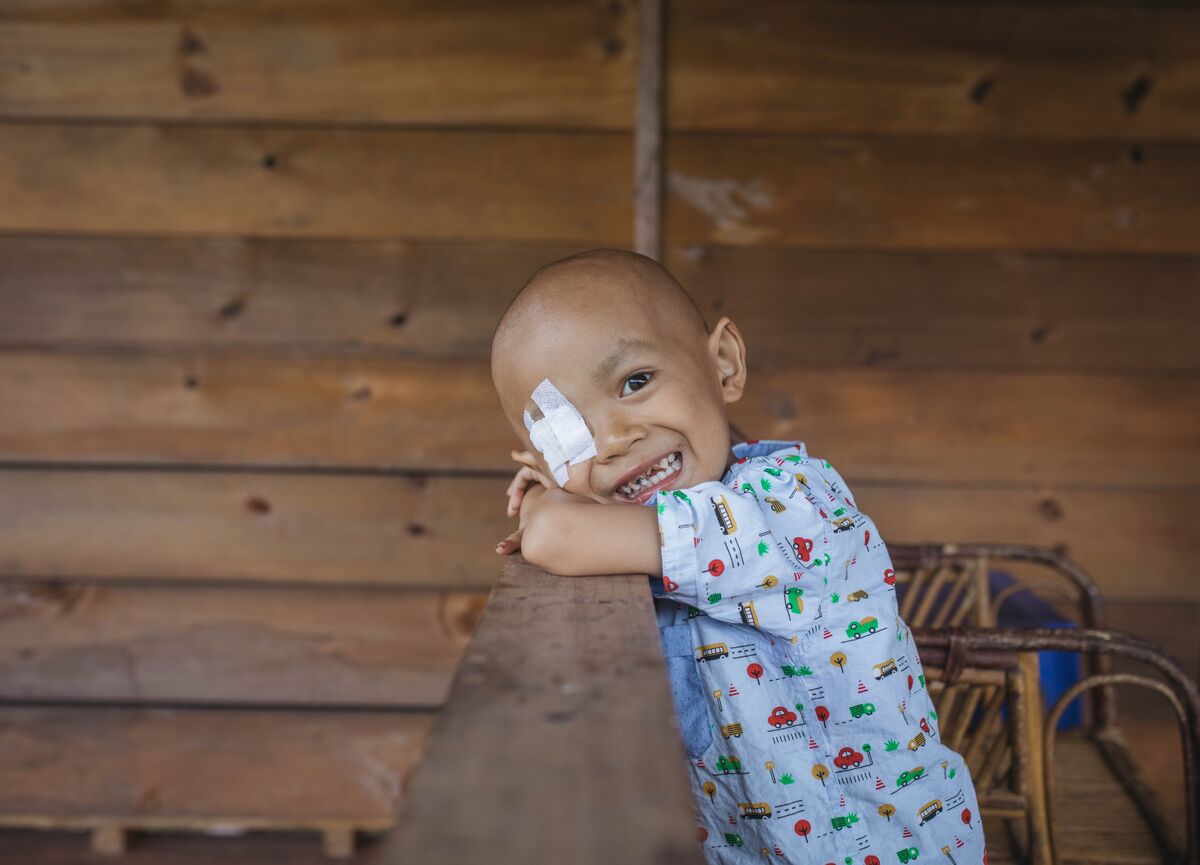
This video was released in July 2022.
If you've been inspired to sponsor a child from Indonesia, visit our sponsorship page.
Pray with us for:
God’s protection over vulnerable children and families in Indonesia
Wisdom and strength for those in positions of authority and leadership
God’s provision for families in the face of the rising cost of living
Indonesia is a stunningly beautiful country made up of more than 17,000 islands!
Child sponsorship with Compassion is a unique opportunity to provide a child with food, clean water, shelter, clothing and medical care.
Official Country Name: Republic of Indonesia
Capital City: Jakarta
Population: More than 275.6 million
Official Languages: Indonesian
Life expectancy: Male 66 years, female 70 years
Population with access to safe drinking water: 92%
Infant mortality rate: 19 deaths / 1,000 live births
Percentage of children under the age of 5 underweight: 17.7%
Adult literacy rate: Male 97%, female 95%
Religion: Approximately 87.2% of the population are Muslim, 7% are Protestants, 2.9% are Roman Catholic, 1.7% are Hindus, 1.2% are Buddhist and Confucian or no not identify with a religion
Percentage living on less than $2.15 a day: 4.4%
CIA World Factbook, World Bank and 2022 Report on International Religious Freedom by the Office of International Religious Freedom, U.S Department of State
The earliest inhabitants of the Indonesian archipelago are believed to have come from India or Burma. By the mid-18th century, as global trade was expanding, the Dutch East India Company dominated the spice trade and took hold of Java before eventually controlling the entire archipelago.
Dutch power weakened during World War Two and Indonesia became a republic in 1945. Achmed Soekarno, who had championed independence since the early 1920s, became president. In 1957, Soekarno overthrew the parliament, declared martial law, and initiated a more authoritarian style of government.
A coup was initiated in 1965, followed by months of violence in which at least 80,000 people were killed in Bali and Java for being suspected communists. From 1967, President Suharto ruled Indonesia with a “New Order” government. Street protests led to his resignation in 1998 and the ensuing riots left more than 1,000 people dead.
In 1999, the people of East Timor voted for independence from Indonesia in a popular referendum supervised by the UN. The vote inspired a backlash, and more than 1,000 East Timorese were killed and hundreds of thousands forcibly displaced. East Timor became a fully independent country in 2002.
Despite its turbulent recent political history, Indonesia is now one of the largest democracies in the world. In 2005, Indonesia reached a historic peace agreement with armed separatists in Aceh, which led to democratic elections. Indonesia faces numerous challenges including the rise of extremism and pressure from separatist movements looking for independence.
Art
Indonesia has a rich history full of art forms, including painting, woodcarving, weaving, dancing, storytelling and puppetry. Batik, a process where patterns are created on cloth with wax and dye, is also popular.
Music
Indonesia is culturally diverse and is home to hundreds of forms of music, with those from Java, Sumatra, and Bali the most frequently recorded. The most popular and famous form of Indonesian music is gamelan, an ensemble of tuned percussion instruments that include metallophones, drums, gongs, and spike fiddles, along with bamboo flutes. Another popular modern style of music is the dangdut, which has an accompanying dance style. It is so popular that many political rallies have dangdut performances to attract a larger audience.
Language
Indonesian (locally referred to as Bahasa Indonesia) is the main language. Indonesian is spoken by more than 94% of the population, but it is the primary language of only 20% of the population. Javanese (Jawa) is the most common primary language, spoken by over 30% of the population. Bahasa Indonesia: Apa Khabar? (What's the news?), Baik, baik. (It's all good), Selamat pagi (Good morning), sore (afternoon), malam (evening), selamat (congratulations; also means salvation) Javanese: Piye Kabare? (What's the news?/How are you?), Apik (It's all good), Sugeng enjing. (Good morning), sugeng sonten (afternoon), sugeng ndalu (evening), selamet (salvation), wilujeng (congratulations)
Sports and Games
Football, tennis, badminton, cycling and motorsports are popular in Indonesia.
Typical Foods
Indonesians eat rice, vegetables and fruit. Fish and meat are used as a flavouring instead of as a main dish.
The typical school year runs from August to June. Education is compulsory for primary school but is rarely completed by children from the poorest communities. For example, 13 to 15-year-old junior secondary school children from the poorest households are five times more likely to be out of school than those from the wealthiest households.
Less than half of 15-year-old students in Indonesia achieve a minimum level in reading, and less than one-third of them achieve the same in mathematics. This puts them at a huge disadvantage. Out of the 46 million adolescents in Indonesia, nearly a quarter of 15 to 19-year-olds are not in education, employment, or training.
Indonesia faces great challenges finding trained teachers and accessing textbooks and other school equipment.
Across the country, there are a number of pesantren, which are essentially Islamic boarding schools. Most are in rural areas where, under the direction of a Muslim scholar, young people receive a detailed understanding of the Quran, the Arabic language, the sharia and Muslim traditions and history.
Source: UNICEF
Wulan had never imagined she would be at the point she is now. She comes from a line of successful entrepreneurs who have been able to provide for their families. But four years ago, their family business experienced difficulties, and they were forced to declare bankruptcy. Now the family live in a government-sponsored apartment built for underprivileged families. During this most tumultuous period of her life, Wulan discovered she was pregnant with a second daughter, Angel. In her first year of life it was clear that Angel’s development was slower than expected. That was when Wulan learned that her daughter has Down syndrome. The family couldn’t earn enough to pay for Angel’s medical check-ups and treatments. Compassion stepped in. Getting support from the Compassion project means that Angel can access the medical help she needs. Thanks to physiotherapy, she can stand up and walk by holding on to the wall. Angel has been showing great results. Angel is growing and developing well with the love of her mother and her church family and the support she needs from the Compassion project. Wulan says she’s grateful for the project’s help that came in her time of need—and thankful for the way the project stands by her family’s side. “I always remember the prayer of Jabez in the Bible, and hold on to it whenever I feel down,” she says. “If not for the Compassion project, I would have just given up.” But now she looks at her daughter and sees a hope-filled future.
Wulan had never imagined she would be at the point she is now.
She comes from a line of successful entrepreneurs who have been able to provide for their families. But four years ago, their family business
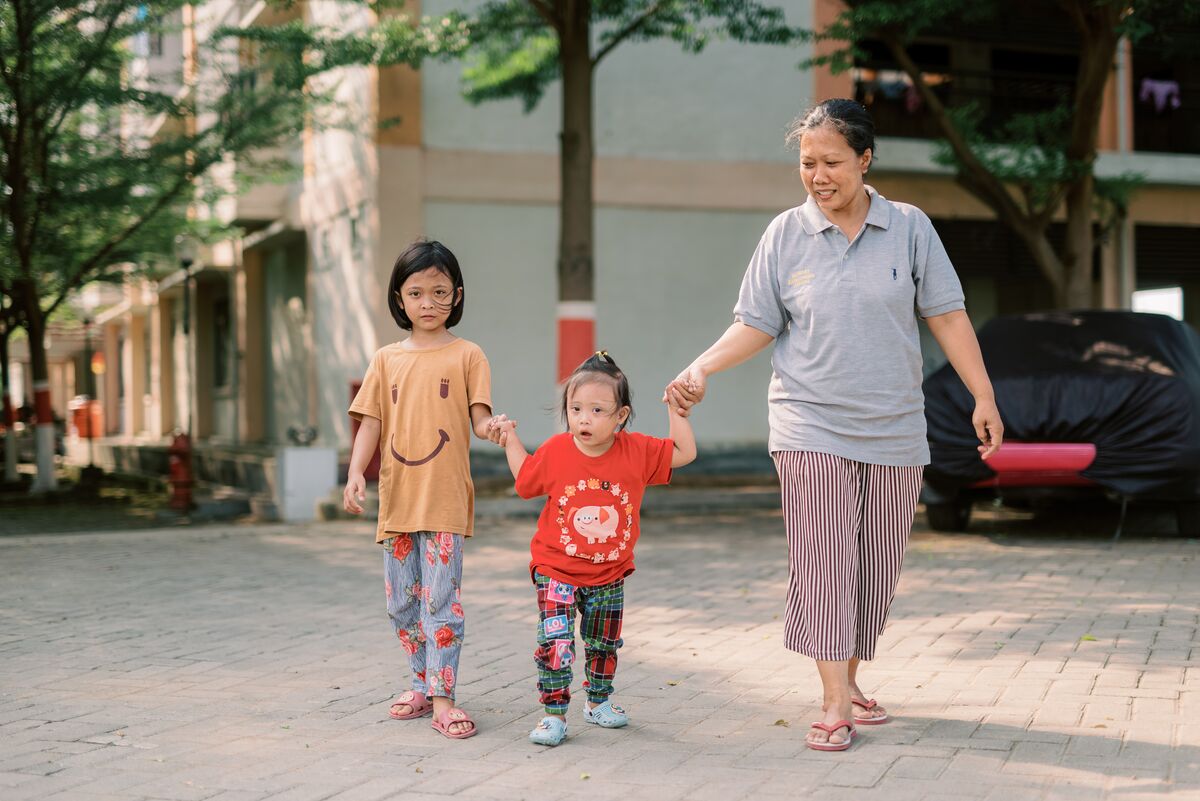
Compassion UK Christian Child Development, registered charity in England and Wales (1077216) and Scotland (SC045059). A company limited by guarantee, Registered in England and Wales company number 03719092. Registered address: Compassion House, Barley Way, Fleet, Hampshire, GU51 2UT.